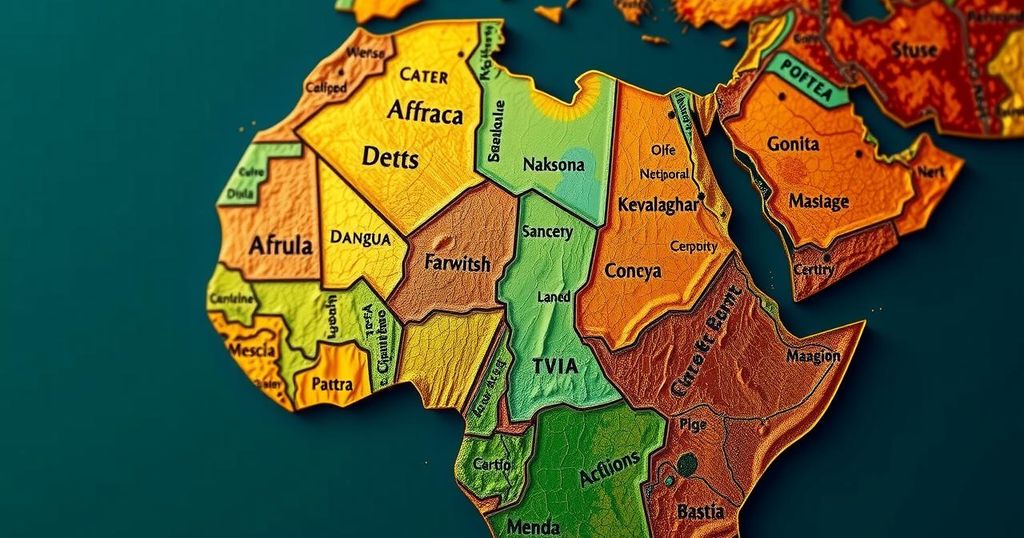Africa’s Green Future: The Necessity of Debt Relief

Africa faces an extreme debt crisis that hampers its ability to tackle climate change effectively. With the continent being the most vulnerable to climate disasters and a growing public debt burden, significant reform efforts are necessary. Upcoming 2024 summits offer a critical chance for global leaders to address Africa’s debt relief needs and integrate climate considerations into financial planning, ensuring sustainable development opportunities for the future.
Africa’s urgent need for debt relief is underscored by the continent’s vulnerability to climate change and the pressing economic challenges exacerbated by extreme weather events. The 2024 summits, notably the International Monetary Fund-World Bank Group Annual Meetings and the United Nations Climate Change Conference (COP29), present crucial opportunities for global leaders to address these intertwined issues. Seventeen of the twenty countries most at risk from climate change are situated in Africa, and the continent has faced significant external economic shocks, leading to an alarming escalation of public debt—240 percent between 2008 and 2022. Such debt burdens have left over half of African nations spending more on interest payments than on healthcare, significantly constraining their ability to invest in sustainable development.
Climate change poses an existential threat to Africa, a continent already facing economic tribulation due to a series of external challenges, including inflation and geopolitical instability. The rise in public debt levels has created a fiscal crisis whereby governments cannot meet essential needs or invest in infrastructure necessary for climate resilience. As world leaders gather in 2024, it is imperative to recognize the relationship between debt relief and sustainable development initiatives to combat climate change effectively. The G20’s effort to provide debt relief has been criticized for its inefficiencies, and a substantial overhaul is required to facilitate sustainable economic growth across African nations.
In summary, large-scale debt relief is not only vital for stabilizing African economies, but it is also essential for enabling the continent to pursue a green and sustainable future. It is imperative for creditor nations and institutions to take decisive action that facilitates equitable burden-sharing, supports structural reforms, and integrates climate considerations into debt sustainability analyses. As Africa stands at a crossroads in 2025, with leadership from nations like South Africa and Uganda on the global stage, the opportunity to influence meaningful progress towards debt relief and sustainable development must not be overlooked. The international community must prioritize these efforts to catalyze Africa’s growth potentials amid ongoing climate challenges.
Original Source: www.koreatimes.co.kr






